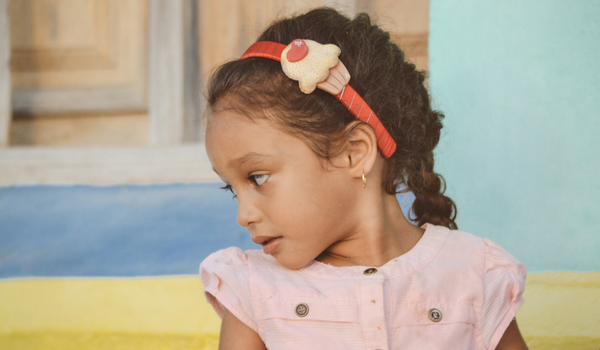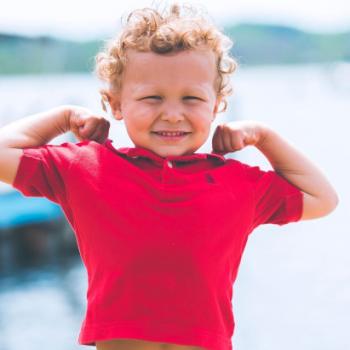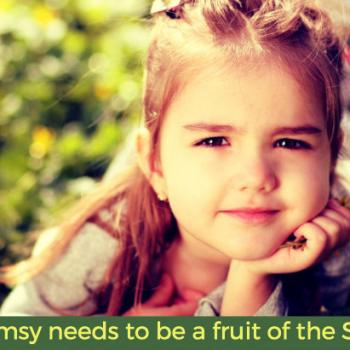Growing up fundamentalist, forgiveness was an indispensable part of Christian life. Embedded in the gospel was the narrative of God’s forgiveness of our sins, and our subsequent reflection of God’s grace through our own forgiveness of others. ‘Forgive us, as we also forgive others,’ Jesus taught us to pray.
There is depth and spiritual wisdom in the call to forgive that lead to powerful stories of healing, reconciliation from individual and family discord to large scale social/political schisms.
And yet.

Photo by delfi de la Rua on Unsplash
A fundamentalist enforcement of forgiveness can lead to lasting harm, in ways that I have personally experienced as a child in conservative evangelical culture. We have a responsibility to unpack those nuances so we can break those patterns for the next generation.
Because the narrative of forgiveness as a spiritual mandate was so strong, the push to forgive at the moment of incursion was almost always immediate. If a child was hurt, or even abused, they were compelled to forgive. The prize of superhuman, or godly, response of forgiveness was pursued at the expense of human emotions like anger, bitterness, resentment, pain and grief. This is a violent erasure of a child’s right to feel their feelings.
A child can feel angry, especially if someone has harmed them. They can cry their tears and shout their words and stomp their feet. They are small but human, and deserve to take up space with all of their hearts, minds, and bodies.
Fundamentalist forgiveness also came without any boundaries. “Susie, do you forgive Johnny for hitting you? Great! Now go along and play nicely, okay?” Forgiveness meant forgetfulness, and the victim is expected to go back to life before the harm. Forgiveness often meant the victim not only should not pursue revenge or demand reparations, but they were the ones responsible for making nice with the perpetrator. A hierarchical system tends to protect the powerful at the expense of the powerless. We see this when child sex assault survivors speak up but are not believed because the reputation of the pastor, or whatever other men in high social standing, was worth preserving in spite of grave injustice.
In the event a child refuses to extend forgiveness, bless her beautiful rebellious heart, she is then painted as the evil-doer, never mind that she was the victim to begin with. The refusal to forgive is more harshly dealt with than the initial abuse perpetrated to warrant the necessity of forgiveness.
How can forgiveness be genuine when it is demanded by spiritual authorities and not flowing organically out of a child’s will? And if it is a coerced forgiveness, can it hold the real power of healing? It cannot. What it can do is clean up a messy situation, shove human feelings under the rug, and paint those in power neatly in their sanitized Christian veneer.
As a result of this form of fundie (faux) forgiveness, the child has no way of knowing other people bear their similar pain, because they too have been silenced, and carry the wounds of their assault in alienation.
If this is forgiveness, do not ask your child to forgive, because you are heaping suffering upon suffering.
Instead, forgiveness must be child-centered. The goal is to relieve and release the child of her emotional burden. It is not for the benefit of the perpetrator, it is not to conform to community expectations, and it is certainly not a requirement to earn God’s favor.
God’s love extends to all, even to the person who goes to his grave carrying bitter resentment—forgiveness is not the passport to get into God’s country.
In this way, we are not in a hurry to get a child to forgive, but we can create space and time for the child to fully understand the extent of her pain, and to work through her feelings of anger. Depending on the extent of damage, this may take the child into adulthood before she can acknowledge what was done with matured cognitive processes. This should not matter. A child’s wholeness is her journey to travel on her timeline.
The human impulse to take revenge is strong. I suppose it is our evolving tribal instincts, but a child who wants to hit back because she has been hit is normal and human. But I believe the strategy to end cycles of hate and abuse is not by demanding forgiveness and manufacturing peaceful solutions, but to validate the suffering endured by the victim and to offer an even more compelling vision than revenge.
“Susie, Johnny hurt you, tell me how you feel? You can take your time and decide whether to forgive him. If you feel hurt again, that’s okay. If you feel like you’ve forgiven him but want to take it back, that’s okay too! And listen, you never have to play with Johnny again if you don’t want to. Let’s go play something else. Look at those beautiful fields of flowers, and those fun swimming holes – we can have fun together over there.”
I just think genuine forgiveness can only come from a child when they are safely frolicking in a field of flowers, on their way to living their adventure.
Get a free download of a Christian parenting manifesto that helps us guide children into healthy spirituality + the most helpful parenting resources with progressive values.















